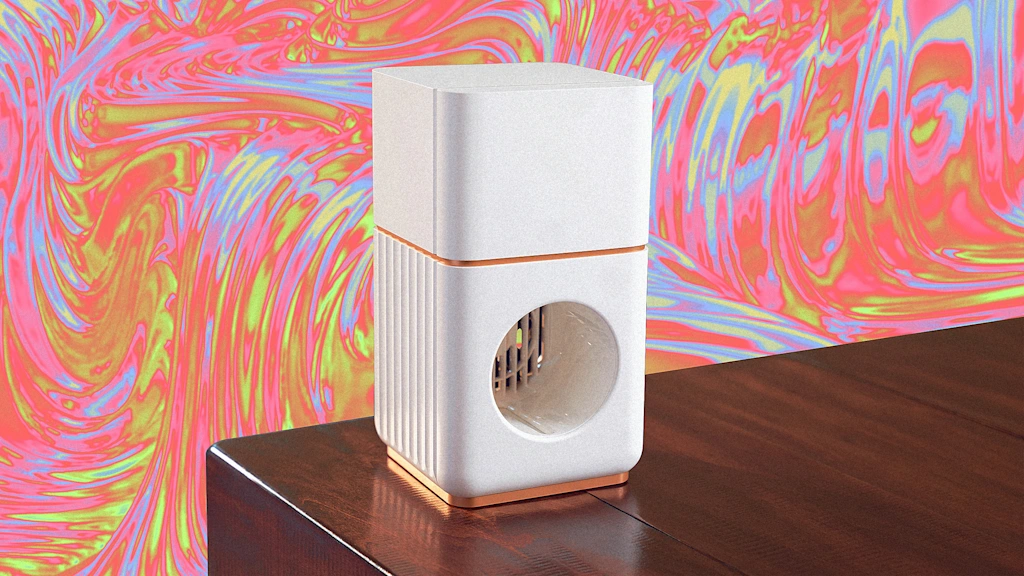
""We are functionally odor deprived." Whereas humans evolved in a scent-filled world, where we didn't even shower, he suggests that whatever room you're residing in now probably smells like nothing by design. That's difficult, as our cognition and ability to smell are closely linked. "All memory loss precedes or is accompanied closely by olfactory loss," notes Leon, who points out many of us experienced brain fog and loss of scent during COVID-19. "In most neurological diseases it's the first symptom.""
"It is the only sense that has a straight pathway to your hippocampal cluster, which manages memory and emotion. (Meanwhile, all other senses take a detour through your thalamus first.) By feeding this region of your brain new odors, research has found you can actually increase gray matter and neuroplasticity-generating new connections in your brain. Smells appear to be a way to exercise and strengthen the very area of your brain that handles memory."
A bedside device cycles through forty different undisclosed scents twice each night while a person sleeps, aiming to improve memory within weeks. Human environments are often low in odors compared with evolutionary conditions, producing functional odor deprivation and reduced olfactory stimulation. Olfactory loss commonly precedes or accompanies memory decline and many neurological diseases, and many people experienced smell loss during COVID-19. The olfactory system connects directly to hippocampal regions that manage memory and emotion, and exposure to novel odors can increase gray matter and neuroplasticity, strengthening memory-related brain networks.
Read at Fast Company
Unable to calculate read time
Collection
[
|
...
]